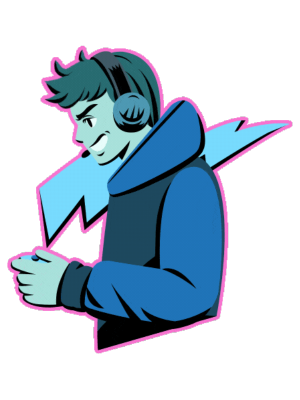Introduction
Game development. It’s a world where creativity blends with cutting-edge technology, and innovation leads to boundless possibilities. The industry is growing rapidly, with millions of passionate gamers worldwide. If you’ve ever dreamed of creating your own games, there’s never been a better time to dive into the process. But how do you begin? Where should you start if you want to enter this dynamic, ever-evolving field?
Let’s break it down and guide you through starting a career in game development.
Unlock the Origins of Gaming Technology Today

The Heart of Game Development
At its core, game development is the process of designing, creating, and maintaining video games. It requires a delicate balance of creativity and technical skill. Every scene transition, sound effect, and gameplay element must come together seamlessly. Whether you’re working on small indie titles or ambitious AAA games, the complexity can be overwhelming but equally rewarding.
Many game development companies offer a range of video game development services, and you might even hire a video game developer to bring your vision to life. However, understanding the basics is key before you explore these options.
Roles in Game Development
The world of game development is not one-dimensional. It involves various roles, each contributing to the final product. Here are the key roles you might consider pursuing-
Game Designer: The Visionary
Game designers create the vision for a game. They craft the core mechanics, rules, and overall experience. Whether it’s building an engaging puzzle or an epic adventure, designers play a pivotal role in shaping how players interact with the game.
Game Programmer: The Architect
Programmers breathe life into a designer’s vision. By writing the code, they ensure that the game runs smoothly. Mastering programming languages like C++, C#, or Python can open the door to working with game development companies or offering your own video game development services.
Game Artist: The Visual Sculptor
Visuals are at the heart of any game. Artists create characters, environments, and animations. Whether it’s 2D sprites or 3D models, artists make the game world immersive and aesthetically pleasing.
Sound Designer/Composer: The Audio Genius
What would a game be without sound? Designers and composers create sound effects and music that enhance the player’s emotional journey, from the clashing of swords to the background melodies.
Quality Assurance (QA) Tester: The Protector of Quality
QA testers ensure the game is free from bugs, glitches, and errors. They play a critical role in making sure that players enjoy a smooth, uninterrupted experience.
Project Manager/Producer: The Coordinator
Producers ensure everything is on track timelines, budgets, and team coordination. They manage the workflow and ensure the game meets the creative and technical requirements.
Essential Skills for Game Development
Whether you’re interested in outsourcing video game development or working for a game development company, there are essential skills every aspiring developer needs:
- Programming: Knowledge of languages like C++, C#, and Python is crucial for many development roles.
- Game Engines: Familiarity with tools like Unity or Unreal is a must.
- Art and Animation: Skills in software like Photoshop, Blender, or Maya for creating 2D/3D assets.
- Storytelling: Strong creative writing for designing narratives and dialogue.
- Problem-Solving: The ability to troubleshoot, debug, and solve technical issues.
- Communication and Teamwork: Working well in a collaborative environment is key for success in a video game development company.
Your Path to Game Development
So, how do you actually start building a career in game development? Here’s a step-by-step guide to get you moving in the right direction.
Step 1: Start Learning
The first step is simple: start learning. Resources abound, both paid and free, for beginners. Here are some suggestions:
- Online Courses: Websites like Coursera, Udemy, and edX offer courses on programming, game design, and even art. Try focusing on platforms that teach Unity or Unreal Engine.
- YouTube Tutorials: Countless YouTube channels cover specific topics like coding, character design, and creating game mechanics.
- Books: Don’t underestimate books on game design and theory titles like The Art of Game Design by Jesse Schell offer invaluable insights.
Pro Tip: If you’re serious about working with video game development companies, start with one game engine (e.g., Unity) and focus on mastering it.
Step 2: Choose Your Focus
Before diving deep, it’s essential to narrow down your interests. Do you want to be a programmer, artist, or game designer? Specializing early will help you gain expertise faster. Keep in mind that many game development services focus on specific niches, so defining your role can make you more competitive.
Step 3: Practice by Creating Games
One of the best ways to learn is by creating. Start with simple projects, maybe a basic platformer or puzzle game. Game jams like Ludum Dare or Global Game Jam are excellent for this. They push you to create a game in a limited time, helping you develop critical problem-solving skills while experiencing the real-world pressure of deadlines.
Step 4: Build a Portfolio
Your portfolio is your proof of talent. Whether you’re looking to hire a video game developer or get hired yourself, having a strong portfolio is essential. Showcase your completed projects on platforms like GitHub or itch.io. It’s your first step toward landing opportunities with game development companies.
Step 5: Join Game Development Communities
eing part of a community helps you stay updated and network with others. Here are a few communities to consider:
- r/gamedev on Reddit: A large community for sharing projects and getting feedback.
- Discord Servers: Many Discord servers cater to specific aspects of game development, from coding to art.
- Twitter: Follow game developers and studios for insights into trends and job openings.
Step 6: Collaborate on Indie Projects
Working with others, even on small projects, will teach you a lot about collaboration and problem-solving. Many game development companies look for team players, so learning how to work within a group is essential. You might even meet like-minded individuals who can help you land your first job or project.
Step 7: Apply for Internships or Entry-Level Jobs
Once you’ve built up your skills and portfolio, it’s time to start applying. Many game development companies offer internships or junior roles. If you’re open to relocation, you could also explore opportunities to hire a video game developer for freelance projects and collaborations.
Real-World Examples and Insights
Game developers come from all walks of life, and success stories can offer invaluable lessons. Take, for example, Toby Fox, the creator of Undertale. Starting with just a passion project, he developed his game using simple tools and turned it into a massive success. Similarly, ConcernedApe, the solo developer of Stardew Valley, started with small steps, learning coding and art on his own before creating a beloved game that resonated with millions.
These stories show that you don’t necessarily need to start working at a game development company to succeed. However, many developers do outsource video game development tasks to speed up processes, especially when scaling up projects.
Overcoming Challenges
Breaking into the game development industry isn’t without hurdles, but challenges like tight deadlines and collaboration conflicts are part of the learning process. Persistence, continuous learning, and the willingness to adapt are the keys to success.
Dive Into Gaming's History for Future Innovation

Conclusion
Starting a career in game development is a blend of creativity, technical skill, and collaboration. Whether you dream of joining a video game development company, starting your own studio, or even offering video game development services, there’s a path for you. With the right resources, community support, and persistence, you can turn your passion for games into a rewarding career.
So, dive in. Start learning, creating, and sharing your work with the world. The next great game could be yours.



